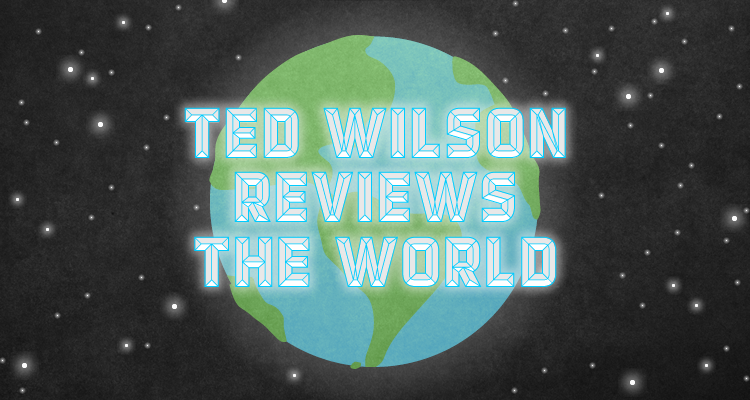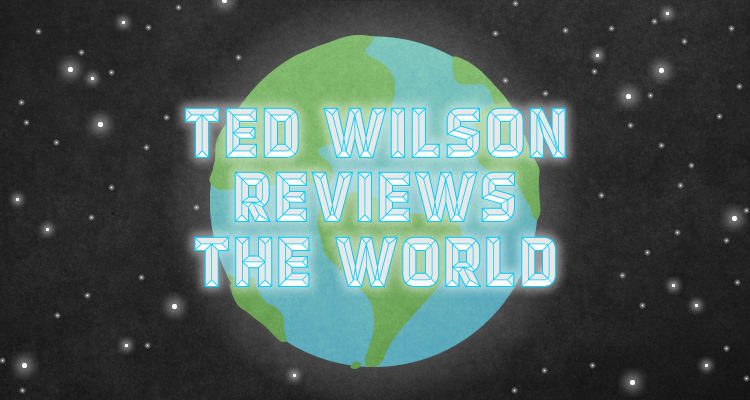Books & Culture
CELEBRITY BOOK REVIEW: Liz Phair on “Wonderland” by Stacey D’Erasmo

Editor’s note: Any resemblances to actual celebrities — alive or dead — are miraculously coincidental. Celebrity voices channeled by Courtney Maum.

The flapjacket of Stacey D’Erasmo’s latest novel, Wonderland vows that her depiction of a forty year-old fallen rock star’s comeback tour “takes us deep into that dreamed-of world — music, fame, and art.” But what it does better than anything is show us what it feels like when you wake up from that dream. Groggy, caffeinated, coked up, sweat-stained, bored out of your skull, or gut deep in depression from a drug comedown, “Wonderland” shows us the underbelly of the rock star life: work days that don’t start until five o’clock, apartments that have to be subletted to strangers, a garbage bag full of personal effects shoved into the furthest corner of a closet, the lovers who have wives.
I love d’Erasmo’s irreverent, gifted protagonist, Anna Brundage. I love her with the beacon kind of idolatry that people used to feel for me. Aside from the intoxicating lull of d’Erasmo’s writing, (her word choices are unpredictable; her sentences short and thick, then sparse, then long), there was the sheer jolt of recognition that came from reading about the hopes and failures of someone so much like myself.
Anna Brundage is the product of two artists: a father who was commercially successful, and a mother who was not. Before I became known for sweetly singing sexually explicit lyrics in a vibrato-less voice, before I blended pop and low fi into my own garage of girl-next-door sound, I was a visual artist. A bad one. Or rather, neither good nor bad enough to “make it” where it counts. A little bit humbled that other people’s opinions were pushing me in a direction I always thought I’d take,
I moved back to Chicago, got underneath the covers of the alt music scene. I started shopping around a demo tape called “Girly Sound.” Matador records gave me a chance, and I turned that chance into “Exile in Guyville,” an album that would come to be ranked by Rolling Stone as one of the 500 Greatest Records of All Time. Back then, in the early nineties, I was a code word. A household noun. And then I lost my way a little. Got married. Divorced him. Came back down.
In 2002, Anna Brundage also invented a new sound. “I became the girl of the stumbling half-note, the note that thrilled the smart people of 2002 and made them feel the heroism of stumbling. My sound wasn’t the propulsive, cathartic shamanism of, you know, fill in the blank with your favorite name. My sound was the sound of the gap, the place where the seams show, where your fate feels like it’s quietly rotting inside your head…The record sounded simultaneously like a dress slipping off a bare shoulder and a girl falling down a well.”
If only we could hear it, the fictional album called “Whale” that made this fictional woman count. Upon its release, this antelope of a woman with “exclamatory” red hair and endless legs became a star in the galaxies that mattered, the elected deity of new sound: “Around the indie recording studios, I became, for a season, a verb. ‘Brundaging’ meant tearing up the sound, erasing half of it, sending it skittering over the abyss.”
Anna follows up her breakthrough album with an experimental homage to mating deer called “Bang Bang”, born into existence in a French chateau lent by a well-connected colleague, an album that is more the product of a hyperactive listlessness than love. “Bang Bang” is an album created by young minds imperiled by good health and self-importance, coaxed into thinking that they’d created a sound that stood for something meaningful after too much coke and pizza shared in the forest after dark. “But in that emptiness, it was now obvious, was the answer. We had had it upside down, or inside out. Bang Bang wouldn’t be the deer, but the absence of the mighty deer, the displaced air where the virile, lonely deer hovered just beneath the surface, just out of sight, just beyond the shadow line of the clearing.”
Yeah. So. That album didn’t do very well. Fast forward through seven years of Anna Brundage working as a carpentry instructor for well-to-do children in an all girls school in Manhattan’s upper east side, neither writing, nor listening to, nor singing any songs. When the muse comes for her again, it comes with empty pockets: Anna has to sell a valuable piece of her father’s artwork to fund her comeback tour.
Is it worth it? Does Anna, effectively, “come back?” “Am I my father or my mother?” She asks in a short chapter entitled “Freedom.” “Think twice before answering.”
The irony of a comeback tour is that we never come back as the thing, the girl, the person, that we were before. Sure, we can sing our greatest hits and sell out noted venues, but the Liz Phair that whispered two stanzas of “Glory” underneath a flamingo-pink halogen at the Troubadour to a sold-out crowd, the Liz that wanted your fresh young jimmy cramming slamming ramming in her, the Liz that shivered for hours outside the back entrance of Chicago’s Double Door in micro shorts and arm warmers just to get her demo to Urge Overkill’s Nash Kato, that Liz Phair will not be coming back, anytime, anywhere, anymore.
In my current iteration, — dirty minded middle-aged mom pop slut, unabashed fan of both Xbox and bukkake facials — I am deemed a “sell-out.” I’m making albums no one wants and I’ve been skewered for it, for not gifting what was wanted. Anna’s comeback tour proves to be a commercial failure, but she regains some sense of self. So who is failing whom, really? Or rather, what is failing what?
The lesson of “Wonderland,” if in fact there is one, (which there isn’t: Stacey d’Erasmo is too rock star for that), is that when you’re a performer, you carry the possibilities of your future performances and the realities of past ones all the time.
Intellectually and emotionally, the stage is always there. Sometimes this stage looks anticipative, bleach-cleaned and too-bright, outfitted with plenty of standing room for your dreams. Other times your presence on that stage is red hot and too urgent, it’s that synchronous feeling when you “blow the song through the back of the rickety concert hall and out into the night, folded, gleaming, fast, faster, unbroken, alive, whirling inside the secret chamber, rose and gold, unstoppable, irresistible, straight into the veins, hair raising.” But other times — most times — this inner stage is littered with unfulfilled hopes and realized fears. It is a place that smells of beer that is increasingly lighter, and tasteless, and sticky all the same, the air ripe with sex that probably won’t be had.
Wonderland is a book that takes us deep into our fantasies about what we are, what we have been, and what we might become. And it is a book about navigating dreams. The bad ones feel like a wet animal on our breastbones. They make it hard to breathe. But the good ones are worse, actually. They taunt and haunt and mock you when you wake. Even if you shut your eyes so tightly you see light specks, you can’t fight your way back into them again.







